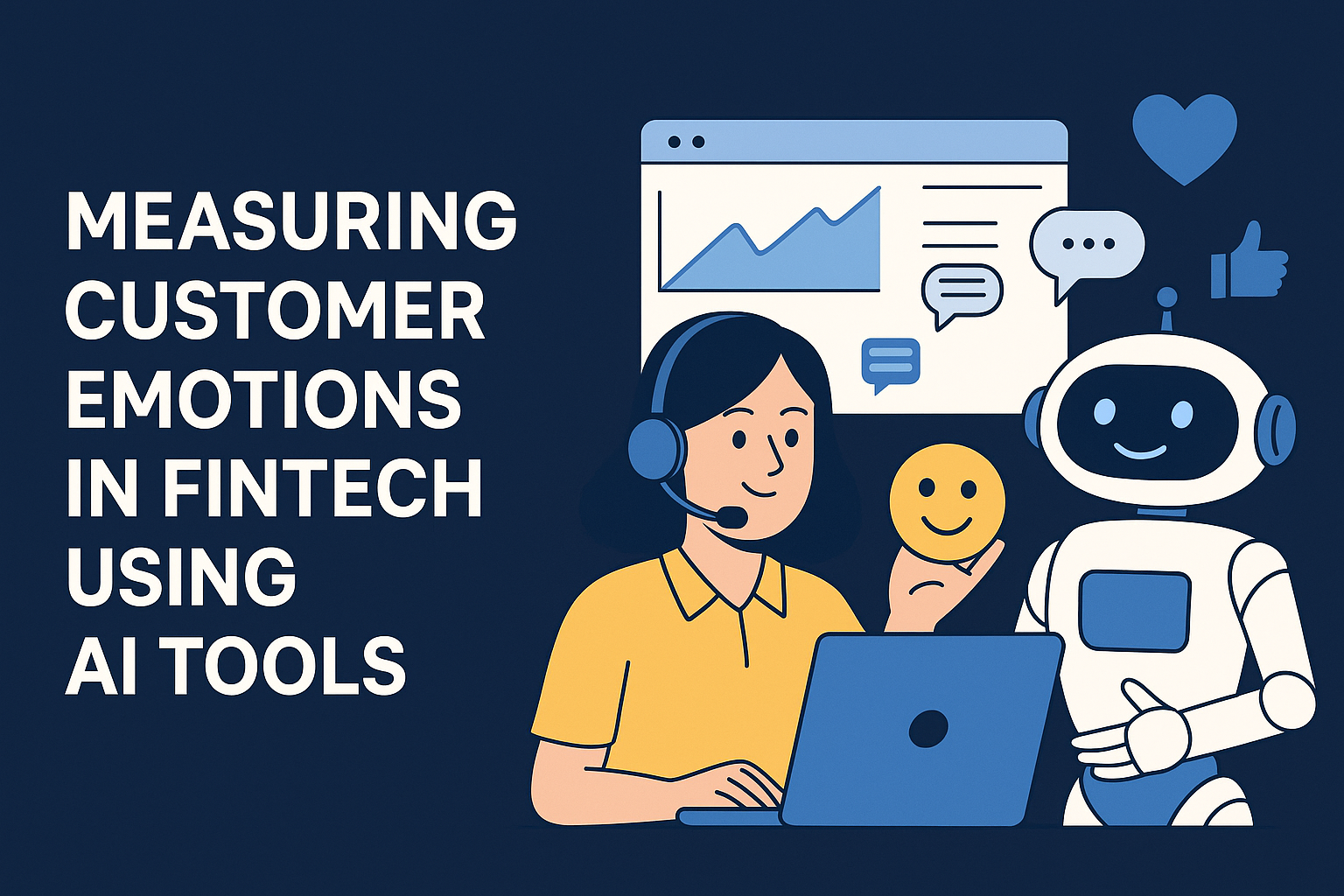Measuring Customer Emotions in Fintech Using AI Tools
The rapid evolution of fintech has opened unprecedented opportunities—and new challenges—for managing customer relationships. As digital transactions become the norm, fintech organizations are shifting their focus toward understanding customer emotions to better personalize interactions and build long-term trust.
AI personal assistants now play a key role in this shift, bridging the gap between transactional experiences and human-like emotional intelligence.
The Need for Emotional Intelligence in Fintech
In a highly competitive industry where trust is currency, emotional intelligence (EQ) is no longer optional—it's essential.
As fintech companies scale, they often lose the personal touch that legacy banks leveraged to build loyalty. AI personal assistants offer a scalable solution, interpreting emotional cues from data to enhance digital customer interactions in a meaningful way.
Emotions and Decision-Making in Finance
Emotions influence financial behavior far more than most companies realize. A Gallup study found that emotionally engaged banking customers contribute to a 23% increase in revenue.
Understanding these emotional signals—whether frustration during a failed transaction or satisfaction after achieving a financial goal—is crucial for fintech firms looking to retain and grow their customer base.
AI Personal Assistants in Decoding Emotions
AI personal assistants can now interpret a wide spectrum of human emotions using advanced algorithms and multi-modal data inputs:
Key Technologies Powering Emotion AI:
- Textual Analysis: AI tools scan chats, emails, and support tickets—using NLP to detect sentiment and emotional intensity.
- Voice Recognition: Emotion AI analyzes tone, pitch, and cadence during calls to determine emotional states in real-time.
- Biometric Feedback: Facial recognition and even heart rate variability (via wearables) can provide biometric insights into user emotions.
- Behavioral Analytics: AI tracks user behavior—like navigation patterns or transaction abandonment—to identify friction points or anxiety triggers.
The Complex Role of Chatbots
Chatbots often serve as the first line of contact in fintech apps. More than just answering FAQs, advanced chatbots assess sentiment during interactions to:
- Escalate emotional or complex cases to human agents.
- Adjust tone and language based on user mood.
- Personalize user journeys from the first point of contact—especially when customers are directed via social media advertising or digital campaigns.
The Impact on Customer Experience
Emotion-aware AI tools enhance the customer journey in ways that directly influence retention, satisfaction, and growth.
Benefits of Emotion-Aware AI in Fintech:
- Improved Support Resolution
AI identifies emotional distress—like during “is it down right now” queries—and enables teams to act quickly and empathetically. - Enhanced Product Marketing
Product teams can tailor messaging to match the emotional tone and preferences of target segments. - Stronger Customer Retention
Emotionally intelligent interactions prevent customer disappointment and align expectations, reducing churn and "delulu" perceptions. - Proactive Problem Solving
By reading emotional signals, AI helps preempt user frustration, addressing issues before they escalate.
Challenges and Ethical Considerations
Despite the promise, deploying emotion AI in fintech must be approached with caution and responsibility.
Core Challenges:
- Data Privacy: Emotion data, especially biometric inputs, requires robust consent and compliance with regulations like GDPR.
- Algorithmic Bias: If not properly trained, AI may misinterpret emotions or discriminate across cultures and dialects.
- Emotional Overreach: Customers may feel uncomfortable with companies reading into their feelings. Clear boundaries and transparency are essential.
Integrating AI with Human Support
AI should complement, not replace the human touch. The best results come from a collaborative approach.
Human-AI Collaboration in Fintech:
- Empathetic Escalation: When AI detects emotional distress, it should prompt human follow-up.
- Continuous Feedback Loops: AI tools must be refined based on real feedback to ensure interpretations remain accurate and unbiased.
- Contextual Support: Human agents can use emotion AI insights to personalize their interactions even further.
The Growth Trajectory of AI in Fintech
AI-driven emotion analytics are set to reshape fintech customer experiences dramatically. According to PwC, 45% of financial services leaders believe AI will fundamentally transform their ecosystem within the next few years.
From SaaS sales to customer onboarding, emotion AI empowers fintechs to:
- Identify high-converting leads.
- Offer personalized financial advice.
- Deliver support that resonates with users emotionally and practically.
Conclusion: Fueling the Future of Fintech with Emotion AI
In today’s digital-first world, fintech firms must do more than resolve tickets—they must connect emotionally with users. AI personal assistants infused with emotional intelligence make that connection possible at scale.
By decoding emotions through text, voice, behavior, and biometric data, fintech companies can humanize their digital experiences—delivering loyalty, satisfaction, and long-term growth.
Explore the future of emotion-aware fintech support. Try Twig for free now.



.png)